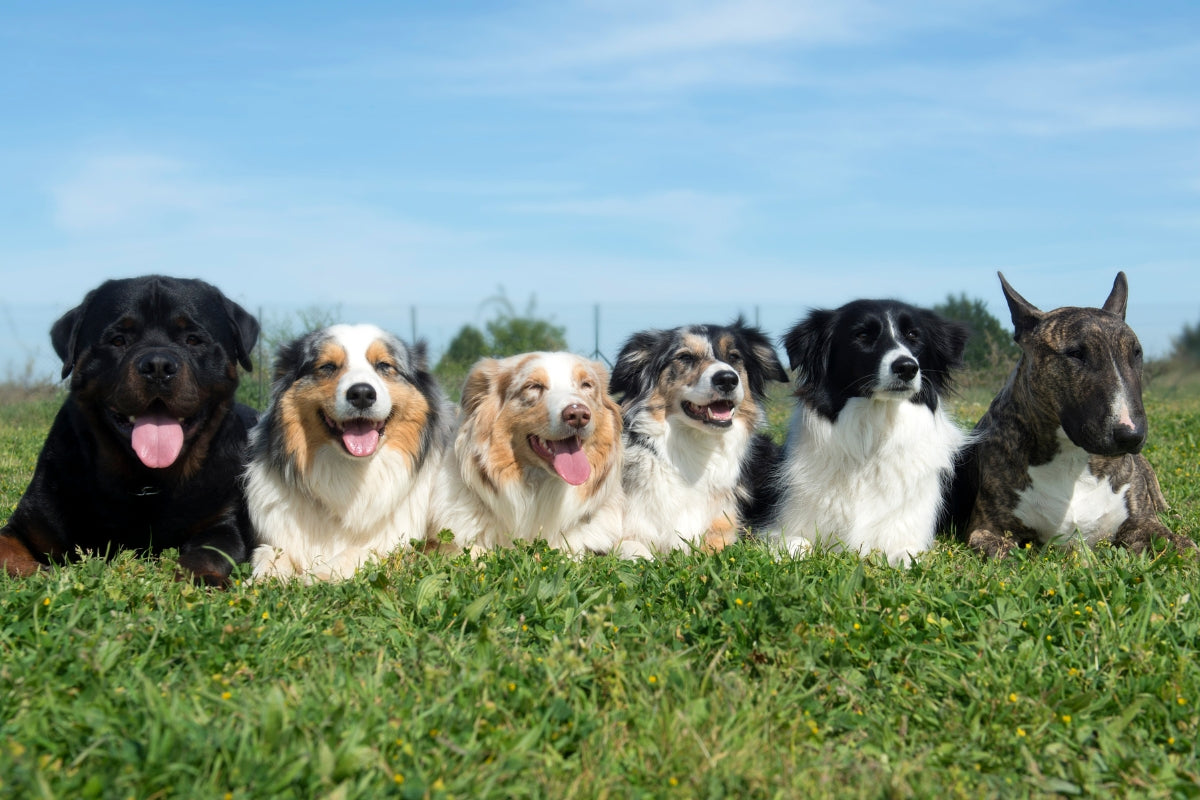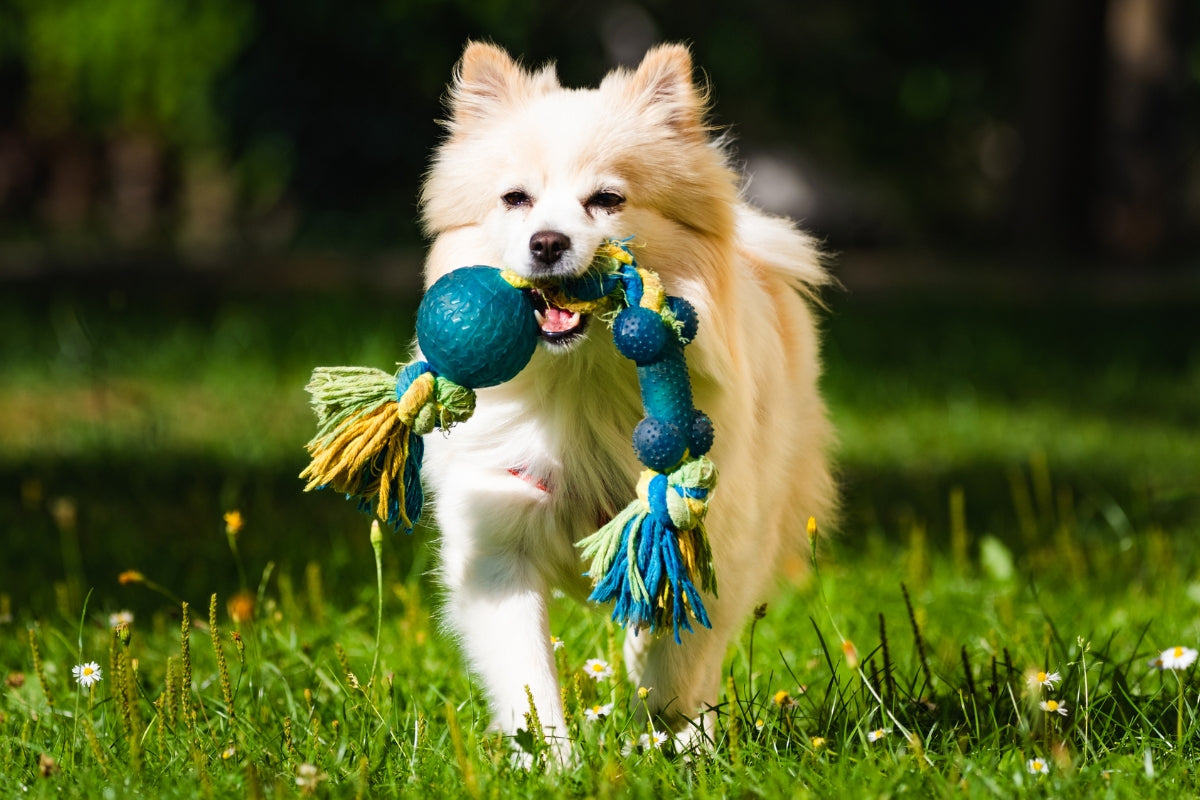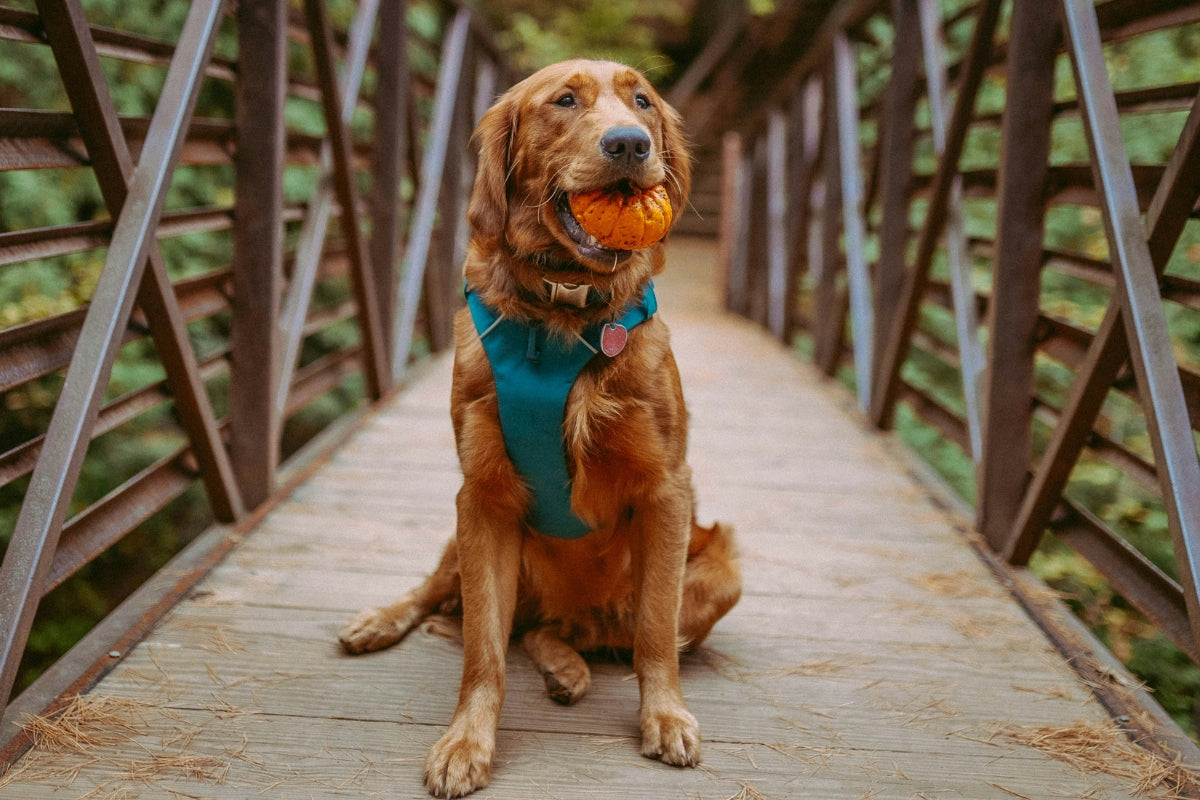Ever wondered why your dog is a social butterfly while your friend’s pooch is more of a quiet observer? Just like people, dogs have their own unique personalities that influence how they interact with the world. And guess what? There’s a way to break it down into five key traits, similar to the "Big Five" personality model used for humans.
The Canine Big Five: Dog Personality Explained
Studies have identified five broad dimensions of canine personality, often referred to as the "Canine Big Five":
1# Energy Level (Extraversion):
Some dogs are constantly on the go, always ready for a game of fetch or an adventure in the park, whilst others prefer a more relaxed lifestyle. High-energy breeds like Border Collies and Jack Russell Terriers thrive on activity and social interaction. They require ample exercise and mental stimulation to stay content. On the flip side, breeds such as Bulldogs or Basset Hounds are often more laid-back, happy with a slower pace and cosy days at home.
2# Affection (Agreeableness):
This reflects how friendly or independent your dog is. Affectionate breeds like Golden Retrievers and Labs are all about those cuddles and belly rubs. They're the ultimate family dogs. Then there are the independent types, like Shiba Inus or Afghan Hounds, who appreciate their personal space but still love you in their own way.
3# Emotional Stability (Neuroticism):
Just like people, dogs can range from completely chill to highly anxious. Sensitive souls like Greyhounds or Cavalier King Charles Spaniels might be more sensitive to changes in their environment and can be easily startled or stressed. On the other hand, breeds like German Shepherds or Dobermans tend to take life's surprises in their stride. They’re often more confident and resilient in the face of new experiences.
4# Trainability (Openness to Experience):
This trait measures a dog’s curiosity and intelligence. Some pups, like Border Collies and Australian Shepherds, are highly trainable and eager learners. Others, like Siberian Huskies and Shiba Inu, may be a bit more stubborn or set in their ways. It doesn't mean they're not clever, they just march to the beat of their own drum!
5# Aggressiveness (Conscientiousness):
This trait is all about how your dog reacts to new people, animals or situations. Some breeds, like the Rottweiler or Doberman Pinscher, have a strong protective instinct and might be more cautious around strangers or other animals. Then there are the more easy going breeds, like the Beagle or Golden Retriever, who are generally friendly and accepting of new people and experiences.
Understanding these traits can help you match a dog to your lifestyle. But you should remember that every dog is unique, breed can only give us a hint about a dog’s typical personality traits. For instance, a German Shepherd might surprise you by being a total softie or a Cavalier King Charles Spaniels could be braver than a lion!
Can a Dog’s Personality Change?
Research shows that dogs’ personalities are pretty stable throughout their lives, though some traits like energy levels might change as they get older. A 2019 study from Michigan State University found that a dog’s core personality (like how sociable or anxious they are) stays consistent, even as their energy wanes with age.
However, a dog's early experiences and environment play a big role in shaping their personality. Dogs that are well-socialised and exposed to various situations when they're young are usually more confident and less fearful as adults. Interestingly, there's also a link between a dog's personality and their owner's. Owners who are anxious or stressed often have dogs that reflect those emotions, while more relaxed owners tend to have dogs that are calmer.
And here's the best part, training can shape your dog’s personality! Positive reinforcement training can help reduce fear and anxiety, build confidence and strengthen the bond between you and your dog.




Leave a comment
This site is protected by hCaptcha and the hCaptcha Privacy Policy and Terms of Service apply.